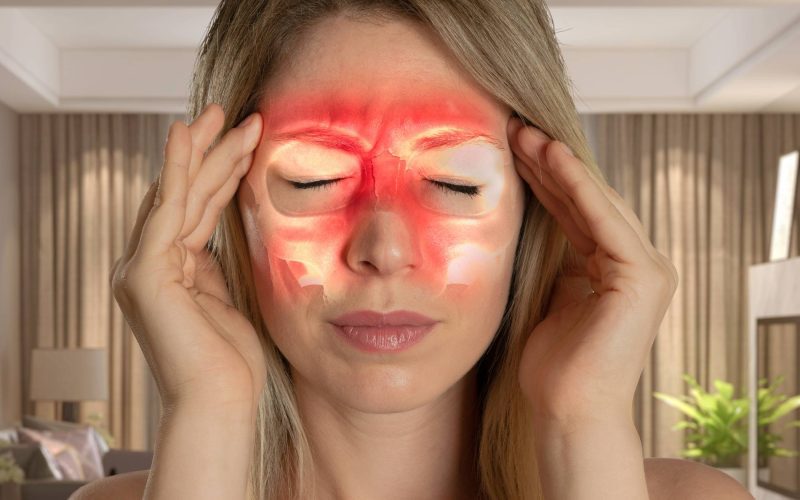Introduction
Headaches can be a prevalent issue, especially among office workers who often find themselves trapped in a cycle of pain and discomfort. Many factors in the office environment, coupled with fatigue and strained eyes, can trigger headaches, leading to decreased concentration, diminished productivity, and an overall sense of irritability. In this article, we will explore effective strategies to lessen the impact of headaches, focusing on techniques that can provide relief and improve well-being, ultimately allowing individuals to reclaim control over their work and personal lives.
Understanding Migraines
Migraines, also known as megrim, are a specific type of headache that can cause intense pain and concern. When a throbbing sensation occurs on one side of the temple, usually near the eye, it is likely a migraine. Individuals suffering from migraines often exhibit sensitivity to light and, in rare cases, unexpected disturbances. These headaches can persist for hours or even days and may be accompanied by nausea and vomiting. Migraines are highly debilitating and can significantly disrupt daily routines and overall quality of life.
Unraveling the Impact of Caffeine
Researchers have identified several food triggers that can stimulate headaches, and caffeine is a commonly recognized culprit. Excessive consumption of coffee, for example, can have varying effects on the severity and frequency of migraines. However, the specific impact of caffeine on migraines remains a mystery. Some individuals may find that coffee worsens their headaches, while others may experience relief. It is essential for individuals to observe their own reactions to caffeine intake and make informed decisions accordingly.
Aromatherapy as a Headache Relief Method
Aromatherapy has gained popularity as a potential relief method for headaches. This therapeutic approach aims to alleviate pain, reduce strain, and promote overall well-being. Essential oils, containing aromatic compounds known for their calming properties, are commonly used in aromatherapy practices. These oils can be inhaled or applied topically to provide relief and induce a sense of relaxation.
Natural Approaches to Headache Relief
Many individuals seek alternatives to pain relievers and medications to alleviate the agony of headaches. Adopting natural techniques can be beneficial in managing and preventing headaches. Here are some strategies to consider:
1. Relaxation Techniques
Engaging in relaxation techniques can help reduce headache symptoms. Physical activities such as stretching, yoga, or gentle exercise can alleviate tension and promote blood flow. Additionally, lying down in a quiet, dimly lit room and practicing deep breathing exercises can provide relief and relaxation.
2. Adequate Rest
Getting sufficient rest and sleep is crucial for headache management. Taking short naps when needed can help alleviate pain caused by migraines. While lying down, gently massaging the forehead can also provide soothing relief.
3. Stress Management
Stress is a significant trigger for many individuals experiencing migraines. Implementing effective stress management techniques, such as mindfulness meditation, practicing mindfulness in daily activities, or seeking counseling, can help reduce the frequency and intensity of headaches.
4. Hydration and Nutrition
Maintaining proper hydration and following a well-balanced diet can play a significant role in preventing headaches. Dehydration and skipping meals can trigger migraines, so it is essential to stay hydrated and fuel your body with nutritious foods.
Medications and Their Effects
Several medications, including certain antidepressants, have been developed to treat headaches. Drugs such as venlafaxine (Effexor), paroxetine (Paxil), and fluoxetine (Prozac, Sarafem) fall under the category of antidepressants and have been used to address migraines. However, it is crucial to note that while these medications may have some effectiveness, they can also produce negative side effects. Tricyclic antidepressant drugs, on the other hand, have shown to be less effective in treating migraines but have fewer negative effects.
Conclusion
Headaches can significantly impact an individual’s well-being, productivity, and overall quality of life. By understanding the causes and triggers of headaches, individuals can adopt effective strategies to manage and alleviate the pain. Whether through relaxation techniques, aromatherapy, stress management, or maintaining a healthy lifestyle, there are various approaches to finding relief and preventing headaches. It is important to remember that each person’s experience with headaches is unique, and finding the right combination of strategies may require some trial and error. By taking proactive steps to address headaches, individuals can regain control over their lives and thrive both personally and professionally.







